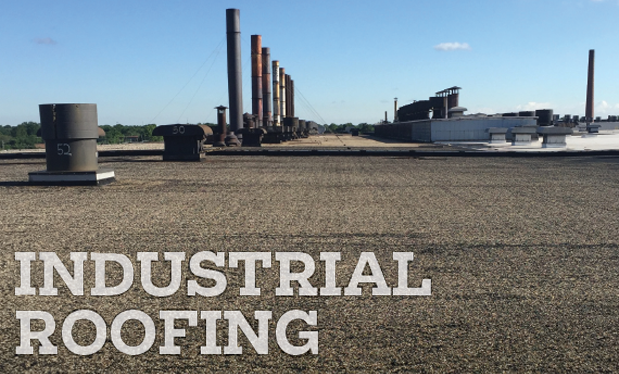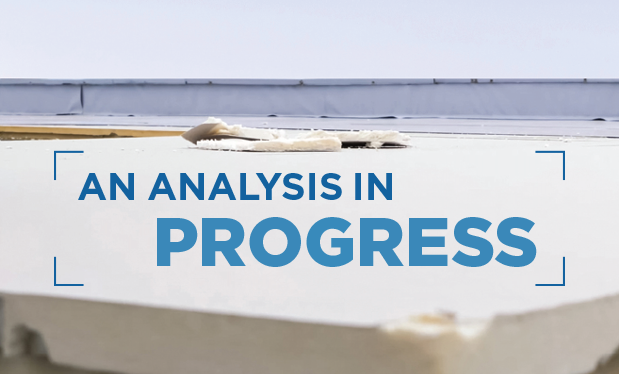NRCA takes construction suicide-prevention pledge
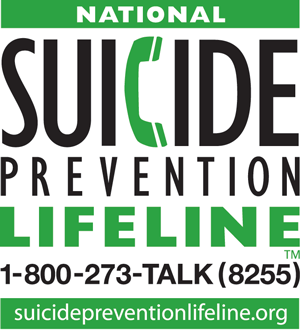
|
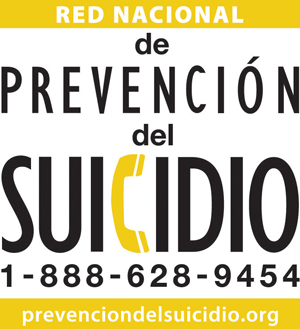
|
To further support the mental health of construction professionals, NRCA has taken the Construction Industry Alliance for Suicide Prevention’s suicide-prevention pledge.
The pledge certifies NRCA’s commitment to promoting the STAND up for Suicide Prevention in Construction model to contractor members and connecting contractors with the resources necessary to adopt the following principles:
- Safe: Creating a culture where employees feel safe to ask for help if they are having suicidal thoughts or if they are concerned a co-worker is at risk of suicide.
- Training: Making suicide-prevention training available to all employees so they can recognize the warning signs and be equipped to help anyone at risk.
- Awareness: Raising awareness through organizational activities such as safety meetings, toolbox talks, company meetings, newsletters and social media to share the message of suicide prevention.
- Normalizing: Normalizing the topic of suicide prevention as a health and safety priority by talking about suicide, suicide prevention and mental health.
- Decrease: Decreasing the risk of suicide in construction by helping ensure access to and awareness of employee assistance programs, behavioral health benefits, screening tools, community crisis support, the Suicide Prevention Lifeline and the Crisis Text Line.
Additional information and suicide-prevention resources are available at preventconstructionsuicide.com/index.php.
Construction market predicted to slip in 2020

|
On Oct. 31, 2019, Dodge Data & Analytics, New York, released its 2020 Dodge Construction Outlook. The report predicts construction starts in 2020 will decline to $776 billion, a 4% decrease from the estimated level of activity during 2019.
“The recovery in construction starts that began during 2010 in the aftermath of the Great Recession is coming to an end,” says Richard Branch, chief economist for Dodge Data & Analytics. “Easing economic growth driven by mounting trade tensions and lack of skilled labor will lead to a broad-based but orderly pullback in construction starts in 2020. After increasing 3% in 2018, construction starts dipped an estimated 1% in 2019 and will fall 4% in 2020.
“[It] will not be a repeat of what the construction industry endured during the Great Recession,” he continues. “Economic growth is slowing but is not anticipated to contract. Construction starts, therefore, will decline, but the level of activity will remain close to recent highs. By major construction sector, the dollar value of starts for residential buildings will be down 6%, while starts for both nonresidential buildings and nonbuilding construction will drop 3%.”
Expectations released in the 2020 Dodge Construction Outlook include:
- Single-family housing starts decreasing 3% in dollar value and 5% in the number of units
- Multifamily housing starts decreasing 13% in dollar value and 15% in the number of units
- Commercial building starts decreasing 6% in dollar value
- Institutional building construction starts holding steady
- Manufacturing plant construction decreasing 2% in dollar value
- Public works construction starts increasing 4%
- Electric utility/gas plants construction decreasing 27%
A.C.T. Metal Deck Supply joins One Voice

|
NRCA has announced A.C.T. Metal Deck Supply, Aurora, Ill., has joined its One Voice initiative as a partner member.
NRCA’s One Voice initiative is a transformational approach to addressing the roofing industry’s most critical issues and concerns—with one voice—to secure its future.
Manufacturers, distributors, architects, engineers, consultants and service providers are invited to fully engage with NRCA as partners and actively address industry issues, including worker certification; affecting change in Washington, D.C.; building codes and insurance; and increasing professionalism in all industry sectors.
For more information about NRCA’s One Voice initiative, including a list of the 34 current One Voice partner members, go to www.nrca.net/onevoice.
Apply now for the Melvin Kruger Endowed Scholarship Program
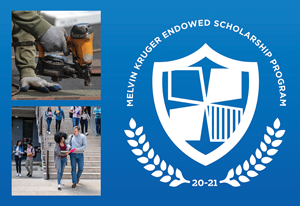
|
The Roofing Alliance has announced the availability of scholarship applications for the Melvin Kruger Endowed Scholarship Program for the 2020-21 academic year.
The Melvin Kruger Endowed Scholarship Program began in 1986 to fund education for employees, spouses and dependent children of NRCA contractor and supplier members who plan to pursue careers in the roofing or construction industries. The program is named for Melvin Kruger, a former NRCA president, former Roofing Alliance president and CEO of L.E. Schwartz & Son Inc., Macon, Ga.
A maximum of 11 students each will receive a $5,000 award that can be renewed for up to three years of undergraduate study as long as a recipient meets eligibility requirements. Scholarship recipients are selected based on academic record; potential to succeed; leadership and participation in school and community activities; honors; work experience; a statement of career goals and aspirations; and an outside appraisal.
The named $5,000 scholarships are: Beacon Roofing Supply Inc.; Dan Cohen; Firestone Building Products (two scholarships); Fred Good; Melvin Kruger; OMG® Roofing Products Inc. (two scholarships); and William A. Good.
The Reid and DeaNa Ribble/Career Technical Education Scholarship is a new scholarship category to help fund students pursuing an education at a vocational or technical trade school. It is designed to help those who are seeking a professional career inside the roofing industry including but not limited to roof system and sheet metal installers/fabricators, crane and equipment operators, foremen and superintendents, warehouse and inventory specialists, and other roofing trade specialties. This scholarship is not designed for careers that require a four-year undergraduate degree. A maximum of five recipients will be eligible to receive a $1,000 award that is not renewable, but winners can reapply the following year.
To learn more about the Melvin Kruger Endowed Scholarship Program or download a scholarship application, go to www.roofingindustryalliance.net or contact Bennett Judson, the Roofing Alliance’s executive director, at bjudson@nrca.net. Applications must be postmarked no later than Jan. 31.
No safe cannabis use for employees in safety-sensitive jobs
The National Safety Council has released a position paper saying “there is no level of cannabis use that is safe or acceptable for employees who work in safety-sensitive positions.” Therefore, NSC says it supports moving workers who use cannabis for medicinal purposes to positions that are not safety-sensitive.
In the paper, NSC says though the amount of THC—the main psychoactive compound in cannabis—detectable in a person’s body does not directly correlate with impairment level, research indicates cannabis affects psychomotor skills and cognitive ability. The council also says it hopes to increase its involvement in policy discussions about cannabis impairment and “provide guidance for employers as they navigate changing cannabis laws.”
The paper cites a study from the National Institute on Drug Abuse showing employees who tested positive for cannabis had 55% more industrial incidents, 85% more injuries and 75% greater absenteeism compared with employees who tested negative.
The paper also points out cannabis use remains illegal at the federal level despite being legal in some form in many states, which can pose enforcement challenges for construction firms, especially regarding employees who use marijuana for medicinal purposes. Experts recommend employers become familiar with medical marijuana laws that apply to their jurisdictions, review zero-tolerance drug policies, and focus more on unacceptable behaviors such as performance and safety issues rather than drug test results.
Linda Hollinshead, partner at Duane Morris LLP, Philadelphia, says employers had been winning state law cases brought by workers who were fired or not hired because of cannabis use, but a few recent cases were decided in favor of workers. Although this may not represent a trend, human resources experts say employers should exercise caution with their policies and consult counsel as needed.

